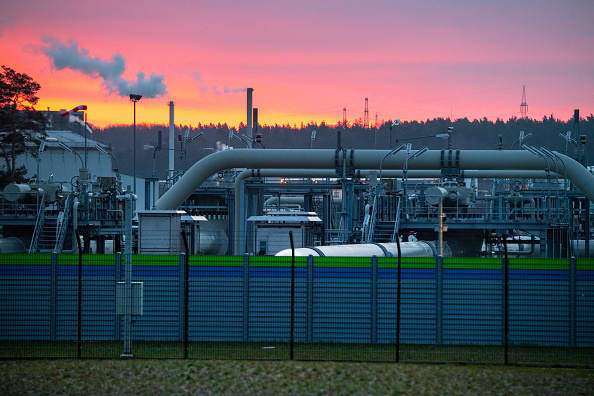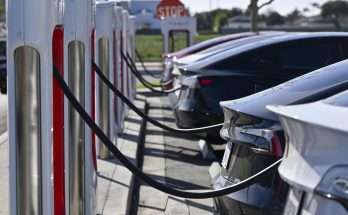
Russian President Vladimir Putin will have to pay the price if he were to “weaponize” gas supplies to Europe as Russia-Ukraine tensions rise, says energy expert Dan Yergin.
As such, the more likely scenario is that gas supplies could be disrupted because of violence in the region, rather than as a result of being weaponized, he told CNBC’s “Squawk Box Asia” on Tuesday.
“So [Putin] could weaponize it on a broader sense, and then Europe would have to scramble — but it will be deeply damaging to his future market for natural gas if he were to do it,” said Yergin, who is vice chairman of IHS Markit. “I think more likely would be disruptions that occur because of violence in the region, combined with the sanctions.”
Russia provides more than 30% of Europe’s natural gas, and Europe’s gas markets are linked by a network of pipelines, some of which pass through Ukraine.
Yergin warned last month that the Russia-Ukraine crisis is an overhang on the gas market.
The Kremlin has used energy as a tool to exert political pressure before. It cut off Ukraine’s gas supply due to a price dispute in 2006, and again in 2014, after it annexed Crimea. In 2009, Russia again cut off gas supplies — this time to Europe through Ukraine.
Tensions between Russia and Ukraine spiked in recent months as Russia built up around 100,000 troops along its border with Ukraine.
It sparked concerns that Russia may be preparing to invade the country, and set off fears of a repeat of the Kremlin’s illegal annexation and occupation of Crimea in 2014. Moscow has repeatedly denied those allegations.
Any confrontation has the potential to destabilize the whole region given Ukraine’s location — separating Russia and the EU.
The crisis has sparked talk the U.S. could impose sanctions on Russia to stop the Kremlin from invading Ukraine.
$100 oil
Right now, there’s “a lot of nervousness” in oil markets, Yergin said. Prices have climbed on tight supply, but also are also gaining support from the Russia-Ukraine tensions.
Basically the only place in the world where you have spare capacity that could be called upon in an emergency, are just two countries — Saudi Arabia and Abu Dhabi, and that’s a definition of a tight market.
Dan Yergin
vice chairman, IHS Markit
Crude prices shot up to above $90 per barrel recently, representing an increase of nearly 20% this year, and a rally of more than 60% since the beginning of 2021.
Some analysts have predicted that oil prices could spike to $100 per barrel.
Yergin said that it could be a replay of 2011, when crude prices rallied to $100 and stayed at that level for three years.
“I think right now we have a market that is crisis prone,” he said.
OPEC and non-OPEC partners, an energy alliance known as OPEC+, have decided to return some supply to the market, by an additional 400,000 barrels per day for March.
But Yergin said some producers could struggle to return to previous levels of production.
“Not all the producers can go back to their old levels, because of underinvestment, because of lack of maintenance. And so they’re not putting 400,000 barrels a day back into the market. They’re putting less into it,” he told CNBC.
“Basically the only place in the world where you have spare capacity that could be called upon in an emergency, are just two countries — Saudi Arabia and Abu Dhabi, and that’s a definition of a tight market,” Yergin added.


